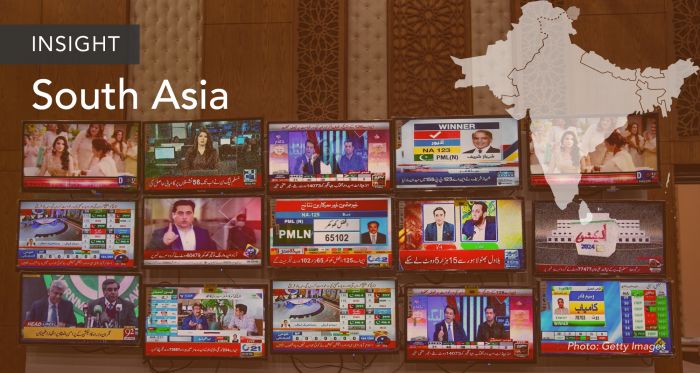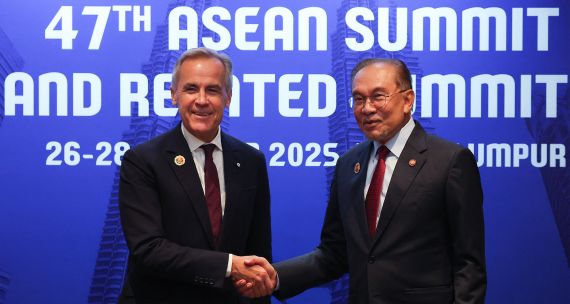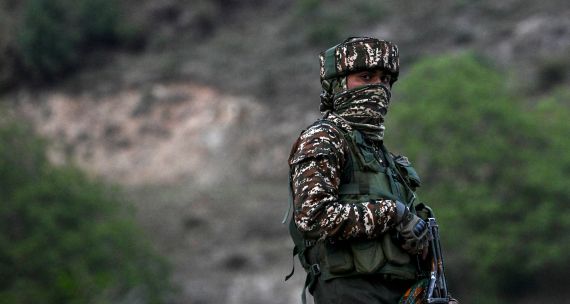The Takeaway
Pakistan’s February 8 general elections, held after delays amid political and economic unrest and security threats, failed to deliver a widely anticipated win for former prime minister Nawaz Sharif and his Muslim League (PML-N) party. With no party winning a clear majority in Pakistan’s National Assembly, the top vote-getters will now try to cobble together a coalition government. They will do so as concerns grow both within and outside Pakistan about political instability, especially given the country’s strategic location in a volatile neighbourhood and its complex relations with neighbouring India, Afghanistan, and Iran.
In Brief
- The populist former prime minister Imran Khan was ousted from power in 2022 in a no-confidence motion and has been jailed since May 2023 on multiple charges. In the run-up to the elections, his Pakistan Tehreek-e-Insaf (PTI) party was barred by the Election Commission of Pakistan from using its famous cricket bat symbol on the ballot. As a result, PTI-backed candidates ran as independents. Nevertheless, PTI-supported independent candidates won the highest number of seats — 93 — in the 336-member National Assembly.
- Three-time former prime minister Nawaz Sharif and the PML-N won 75 seats, the second-most of any party. While Sharif was convicted in 2017 for corruption, his return to the electoral process was apparently enabled by the backing of Pakistan’s powerful military.
- On February 7 — a day prior to the polls — twin bomb blasts at the election offices of an independent candidate and the Jamiat Ulema-e-Islam (JUI) party in Balochistan province killed at least 30 people. Citing the “deteriorating security situation,” the government imposed a nationwide shutdown of mobile and internet services on election day.
- Many Pakistanis have called the election not fully free or fair. Canada, along with other Western countries, also condemned the “lack of a free, fair and transparent democratic process.”
Implications
The new government will inherit a turbulent political landscape. In the run-up to the elections, Khan’s supporters accused the government and the military of intimidation and electoral manipulation. The police cracked down on massive rallies held in Khan’s support in 2023, arresting many PTI members. Many PTI supporters allege vote-rigging and view the army’s apparent support of the PML-N as a veiled military takeover. Notably, of the 76 years of Pakistan’s independent history, 30 have been spent under direct military rule. The military has also exerted indirect influence during the tenures of civilian governments.
Preventing further economic crises is paramount. The new government will also have to bring about a semblance of economic stability while grappling with an ongoing energy crisis and inflation surpassing 28 per cent. The situation worsened in June 2023 when foreign reserves plummeted, triggering fears that the country may default on its debt repayment. Outgoing Prime Minister Shehbaz Sharif, the brother of Nawaz Sharif, secured an IMF bailout in July 2023 before his term ended, but the caretaker government struggled to meet the IMF’s conditions. The current phase of the IMF bailout concludes in March, which means the incoming government will have little time for any renegotiation of the terms. Pakistan faces a looming debt crisis, with US$22 billion in external debt obligations due by June 2024.
Pakistan faces serious security challenges. The change in government is happening in a context of rising security and diplomatic crises. In 2023 alone, terrorist attacks in the country killed more than 1,500 people. Moreover, a resurgence of attacks by the Tehreek-e-Taliban Pakistan (TTP), also known as the Pakistani Taliban, has exposed the country’s security vulnerabilities. On its northern flank, tensions with Afghanistan’s Taliban government prompted Islamabad to deport nearly two million Afghan migrants in late 2023. To its west, Pakistan launched missile strikes into neighbouring Iran in January in retaliation for Iranian strikes into Pakistan a few days earlier. And to its east, Pakistan faces tensions with its longstanding rival, India, which were recently heightened by Islamabad's allegations that New Delhi had orchestrated assassinations within Pakistani territory.
What’s Next
- Challenges to forming a new government
According to Pakistan’s Constitution, parties should form a government within three weeks of election day. With no party having won a majority — the PTI-backed candidates’ 93 seats are well short of the threshold of 169 — a coalition government is likely. Reports suggest Sharif’s PML-N might team up with the Pakistan People’s Party, which stands in third place, with 54 seats, to form the next government.
As the military is expected to continue exerting its influence, the new government will be forced to co-operate with it to address the country’s security problems. The army has also been directly involved in introducing economic reforms. However, such efforts will likely be tainted by protests and political instability if a new government is constituted without regard to the popular mandate.
- Dwindling co-operation with the West
Pakistan's relations with Western powers have recently been strained, especially as U.S.-India ties grow stronger as part of a strategy to balance China. Given its close relationship with Beijing, Pakistan is unlikely to align with Western powers in this effort. Furthermore, Khan has accused the U.S. of being involved in his ouster in 2022, which has fuelled popular anti-American sentiment. This deterioration of relations with the West could further hinder Canada’s efforts to assist and resettle Afghan refugees in Pakistan.
• Produced by APF Canada’s South Asia Team: Suvolaxmi Dutta Choudhury, Program Manager, and Suyesha Dutta, Research Scholar. Editors: Erin Williams, Ted Fraser. Graphic Design: Chloe Fenemore






